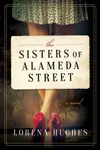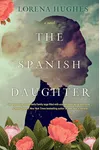Picture a storyteller who spun Ecuador’s vibrant history into gripping family sagas—meet Lorena Hughes! Born in Ecuador and now a bestselling Latina author in the United States, Hughes captivates readers with her award-winning historical fiction. Her novels, like The Spanish Daughter and The Sisters of Alameda Street, blend mystery, romance, and Latin American culture, earning praise from outlets like The Washington Post and Publishers Weekly.
With a knack for crafting tales as addictive as chocolate, Hughes has become a standout voice in historical fiction, bringing Ecuador’s past to life for global readers. Let’s dive into her journey, from an artistic dreamer in Ecuador to a literary star in the U.S.
The Making of Lorena Hughes
Lorena Hughes was born and raised in Ecuador, where her childhood was steeped in the dramatic telenovelas she watched with her mother. While other kids played house, young Lorena had her Barbies reenacting tales of betrayal and unrequited love. At 18, she moved to the United States to study fine arts and mass communication at The University of New Mexico. Her early career in advertising, graphic design, and illustration reflected her creative spirit, but writing was her true calling, sparked between diaper changes and naps after she became a mother.
Hughes’s first novel took nearly 20 years to evolve from a telenovela-inspired idea to a published work. Her persistence paid off, and her background in visual arts and journalism shaped her vivid storytelling, rich with cultural and historical detail.
Lorena Hughes’s Unforgettable Stories
Hughes’s novels are a love letter to Ecuador’s history, blending historical fiction with the drama of a Latin soap opera. Her debut, The Sisters of Alameda Street (2017), follows Malena Sevilla’s quest to find her mother in 1960s Ecuador. The novel weaves mystery and family secrets across the 1930s and 1960s, earning praise for its vivid characters and telenovela-esque twists.
The Spanish Daughter (2021), an Amazon Editors’ Pick, transports readers to 1920s Ecuador, where chocolatier Puri inherits a cacao plantation and uncovers her father’s secrets. Hughes’s research into Ecuador’s cacao boom shines, with suspense and sibling rivalry driving the plot. Its sequel, The Queen of the Valley, continues her knack for lush settings and intricate family sagas. Her work, described as “engrossing” by Chanel Cleeton, appeals to fans of authors like Christina Baker Kline and Kate Quinn.
Hughes’s style is immersive, with richly drawn settings and strong, audacious heroines. Her themes of identity, betrayal, and resilience resonate deeply, reflecting her Ecuadorian roots and her experience as an immigrant navigating two cultures.
Why Lorena Hughes Matters
Lorena Hughes has carved a unique space in historical fiction, amplifying Latin American voices and histories often overlooked in mainstream literature. Named one of HIP LATINA’s “9 Rising Latina Authors You Don’t Want to Miss,” she’s a trailblazer for Latina writers. Her novels not only entertain but also educate, shedding light on Ecuador’s cultural and economic past, from cacao plantations to mid-century social mores.
As a family photographer and coordinator of the UNM Writers Conference, Hughes inspires aspiring authors, proving that persistence and passion can turn dreams into reality. Her stories resonate with readers seeking diverse, emotionally rich narratives, making her a vital voice in today’s literary landscape.
About Lorena Hughes
- Born: Ecuador
- Key Works: The Sisters of Alameda Street, The Spanish Daughter, The Queen of the Valley
- Awards: 2011 Southwest Writers International Contest (Historical Fiction), Amazon Editors’ Pick for The Spanish Daughter
- Fun Fact: She once interviewed Latin megastar Ricky Martin!
Snag The Spanish Daughter and dive into Lorena Hughes’s lush, suspenseful world of historical fiction!


